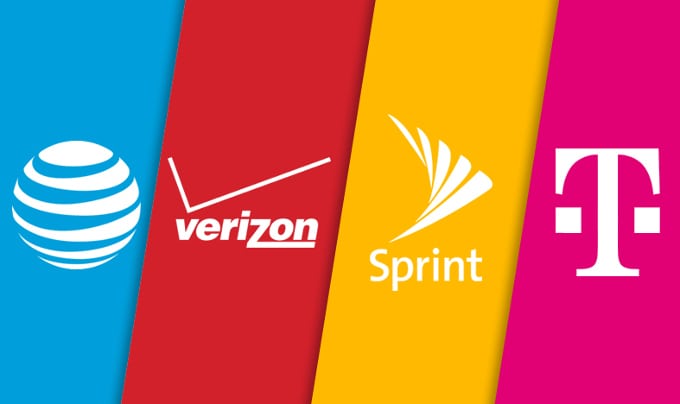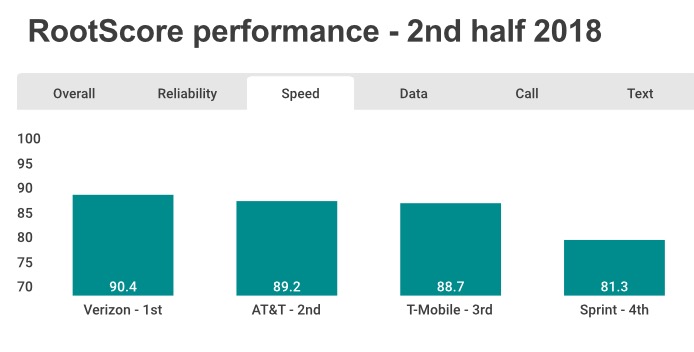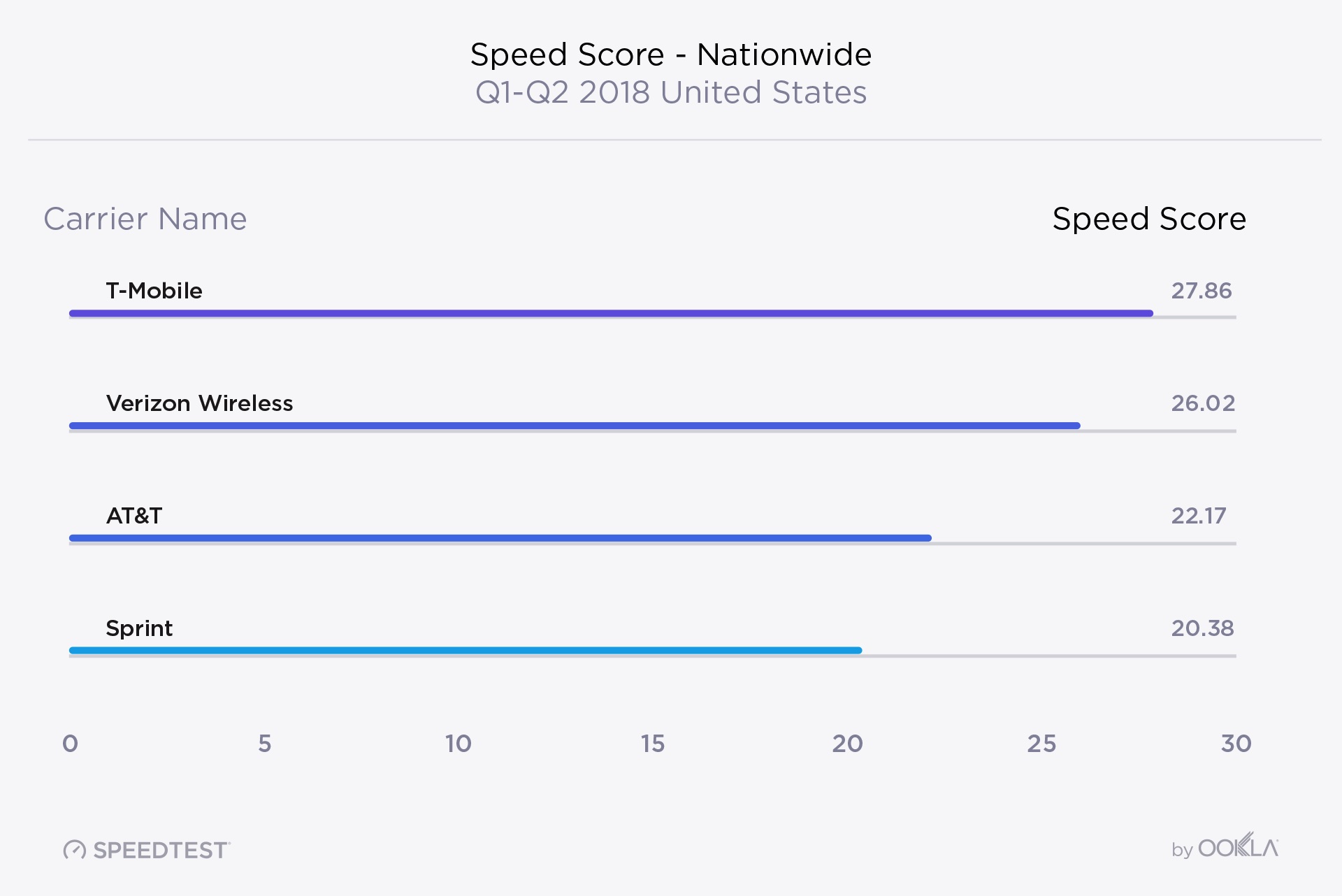Which Carrier Has the Fastest 4G LTE Data Speeds in the US?
 Credit: Source: PhoneArena
Credit: Source: PhoneArena
Toggle Dark Mode
While the hype surrounding 5G is strong, the vast majority of us rely on — and will continue to rely on — 4G LTE. Because of that, it’s useful to know which U.S. carrier has the fastest 4G LTE.
But, as it turns out, that question is harder to answer than you might think. Each of the four major carriers continually work to improve their own 4G LTE systems and infrastructure. Because of that and other factors, the rankings tend to fluctuate a bit. If you’re looking for a short answer, continue reading.
Which Carrier Has the Fastest Network?
- Verizon is usually the fastest, although T-Mobile often ties with it or comes second.
- Occasionally, T-Mobile will be faster, with Verizon coming in second.
- AT&T and Sprint routinely come in third and fourth, respectively.
But, as we hinted at earlier, it’s a bit more complicated than that. For example, a RootMetrics speed report published earlier this year showed that Verizon was the fastest carrier in the second half of 2018, followed by AT&T, T-Mobile and Sprint (in that order).
On the other hand, if you look at another testing firm, like OpenSignal’s report published in January, you’ll see a slightly different picture. In that report, Verizon and T-Mobile reportedly tied for download speeds.
But download speeds are just one part of the equation. OpenSignal notes that Verizon actually took the clear top spot when it came to 4G coverage, upload speeds, and video streaming experience. AT&T, for its part, still continued to dominate in network latency.
And, interestingly, an Ookla Speedtest Intelligence report indicates that T-Mobile was actually the fastest network during the first half of last year. That’s the latest data from Ookla, since the firm hasn’t released an update report for the latter half of 2018.
Different testing firms will come up with different results, mostly because their methodology varies.
More than that, carrier performance can vary drastically between urban and rural areas, or in different parts of the country.
The device you’re using also plays a part. An iPhone XS, with its 4×4 MIMO, is going to see better LTE performance than an iPhone 8 or even an iPhone XR.
All of this is to say that it’s fairly difficult to tout one of the Big 4 carriers as a clear winner across the board. Some will do better in download speeds in urban areas, while others will do better in rural areas or when looking at a metric other than download speed.
You can declare a “winner,” but the fact is that there will likely be another network with better performance than that winner in certain markets.
It’s also really important to note that the differences in speed aren’t going to be all that noticeable unless you’re comparing two devices on two different networks side-by-side.









